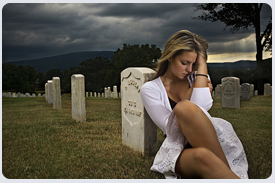“What happened to the America I loved?”
Quite frankly we no longer live in the America of the 1950s, known as the high water mark for white Protestant America or “Eisenhower’s America.”
Author Robert P. Jones describes that America that is now a shell of its former self:
“June Cleaver was its mother, Andy Griffith was its sheriff, Norman Rockwell was its artist, and Billy Graham and Norman Vincent Peale its ministers.”
In his excellent book, The End of White Christian America, Jones tells the compelling story of the rise and fall of Dr. Robert Schuller’s very successful evangelical empire. Located in very affluent, very conservative, and very white Orange County in Southern California, Schuller’s ministry was built and sustained on this once stable demographic (I lived in Orange County for four years from 1995-1999).
But something quite unexpected occurred that ultimately led to the downfall of Schuller’s evangelical ministry. In the 1970s and 1980s there was an increasing shift in the regional demographic (profile) of Orange County.
Immigrants from Central America and South Asia began migrating to Orange County, creating a demand for “Catholic parishes, Buddhist temples, and Islamic mosques.” According to Jones Orange County today hosts the “third largest concentration of Asian Americans” and in the period between 2000 and 2009 the Asian population in Orange County increased 41 percent.
The bottom line to this influx of immigrants (in a once dominantly controlled white county) was the loss of white majority status, thus setting the stage for the decline and ultimate sale of Schuller’s Crystal Cathedral and death of the popular “Hour of Power” television ministry.
In 2012 having filed for bankruptcy, Schuller’s Crystal Cathedral was sold to the Roman Catholic Diocese of Orange County for $57.5 million dollars.
The sad truth for Schuller’s congregation, made up of predominantly white evangelicals, was that they became unwilling victims of a significant demographic shift that necessitated a much different approach to religious ministry in that area.
White America in Orange County was forced to unwillingly take a back seat in what was once an affluent county of white Americans.
Now there is no point in casting blame or scapegoating Schuller’s children who attempted to keep the ministry afloat following their father's death. They too became victims of demographic changes and forces over which they had no control other than perhaps adapting to the changes and shifting their ministry approaches that had once been geared toward a 1950s demographic.
This unfortunately they did not do.
So what has this story have to do with the vanishing of the 1950s Rockwell America so many long for today?
I am suggesting that the demographic shift that took place in Orange County California represents in microcosm what is currently taking place across America today. America has become a much more culturally and demographically diverse country than it was in the 1950s.
With the inclusion of ethnic minorities and women into the structures of America once dominated by white males tour nation is literally getting a new facelift of sorts. We are no longer a nation whose dominant voice is from white males. In other words, if one aspires to be a leader of this great nation today then one must consider and adapt to this increasingly expanding American profile of cultural, gender, and demographic diversity.
The days of white males running the show are over.
The days of white Americans being the controlling voice of America’s continuing narrative no longer exist.
This isn’t to say that white men no longer matter. We do! We continue to share the responsibility of working together with Asians, African-Americans, Hispanics, Indians (Bharatiya), Native Americans, and females in moving our great nation into a hopeful future.
I am of the opinion that this changing American profile may in fact be partly responsible for the current divide among Americans today. Part of the reason for the troubling conflict that exists in this current presidential election cycle may very well reflect the profile changes of America today.
When I hear people say that they don’t like the direction our country is headed could this be what they fear? Are they even aware that such a shift is taking place among us?
I am very hopeful for America’s future. I am cautiously optimistic that the great American dream of being the land of liberty and justice for everyone will become a living reality in our own lifetime. We must learn to work together for a better future for our children and grandchildren.
I believe in this ideal with all my heart. I also believe America is the greatest hope for all people of this world, that we can actually become that city on hill illuminating the rest of the world with liberty and justice for everyone.
So what happened to the America I love?
Quite frankly she is growing up, she is maturing, she is coming of Age!
She refuses to be anything less than gloriously diverse!












